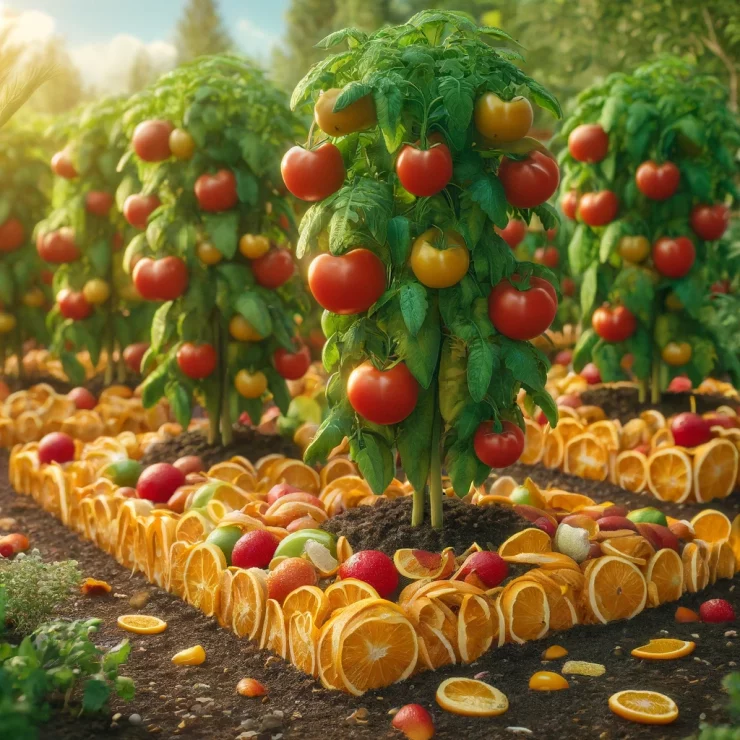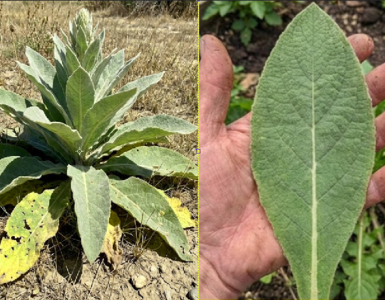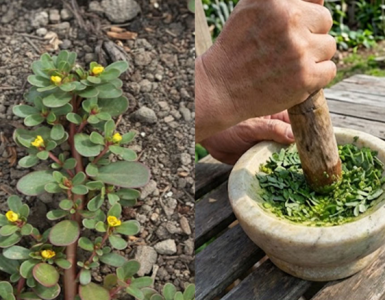In the pursuit of cultivating a vibrant and thriving garden, many gardening enthusiasts explore various techniques and remedies to enhance plant growth and vitality. Surprisingly, one of the most potent yet often overlooked solutions lies within the confines of your kitchen: citrus peels. Those seemingly mundane remnants of your morning orange or lemon hold remarkable potential when it comes to nurturing your garden flora. Let’s delve into the myriad benefits of incorporating citrus peels into your gardening regimen and witness the transformative effects they can bring to your green haven.
Nutrient-Rich Compost Amendment:
Citrus peels, packed with essential nutrients such as potassium, phosphorus, calcium, and magnesium, serve as an excellent addition to your compost heap. As they decompose, these peels gradually release these nutrients into the soil, enriching it and providing a fertile environment for plant growth. Moreover, the high acidity of citrus peels can help balance the pH levels of alkaline soils, ensuring optimal conditions for a wide range of plant species.
Natural Pest Repellent:
The strong scent and potent oils present in citrus peels act as a natural deterrent against common garden pests such as ants, aphids, and slugs. By strategically placing citrus peels around your garden beds or incorporating them into mulch, you can effectively ward off unwanted invaders without resorting to harmful chemical pesticides. This eco-friendly approach not only safeguards your plants but also preserves the delicate balance of your garden ecosystem.
Soil Conditioning and Moisture Retention:
In addition to their nutrient-rich composition, citrus peels offer valuable properties that promote soil conditioning and moisture retention. When finely ground or chopped, these peels can be mixed directly into the soil or used as a top dressing. Their fibrous texture aids in improving soil structure, allowing for better aeration and water infiltration. Furthermore, the organic matter in citrus peels helps retain moisture, reducing the frequency of watering and minimizing water loss through evaporation—a boon for water-conscious gardeners.
Enhanced Microbial Activity:
Healthy soil teems with a diverse community of microorganisms essential for nutrient cycling and plant resilience. Citrus peels, with their rich organic content, foster the proliferation of beneficial microbes, enhancing soil biodiversity and fertility. The gradual breakdown of citrus peels by soil-dwelling organisms not only releases nutrients but also stimulates microbial activity, creating a harmonious environment conducive to robust plant growth.
Application Tips:
To harness the full potential of citrus peels in your garden, consider the following application tips:
Composting: Chop or shred citrus peels before adding them to your compost pile to accelerate decomposition.
Mulching: Scatter dried citrus peels around the base of plants or incorporate them into mulch to deter pests and enrich the soil.
Soil Amendment: Mix finely ground citrus peels into the soil or sprinkle them on the surface as a nutrient-rich amendment.
Container Gardening: Place whole or chopped citrus peels in the soil of potted plants to promote moisture retention and microbial activity.
Incorporating citrus peels into your gardening practices is not only a sustainable way to repurpose kitchen waste but also a powerful strategy for promoting plant health and vitality. From enriching the soil with essential nutrients to warding off pests and enhancing microbial activity, citrus peels offer a myriad of benefits that can transform your garden into a flourishing oasis of greenery. So, the next time you enjoy a refreshing citrus snack, remember to save those peels—they might just hold the key to unlocking your garden’s full potential.






Add comment